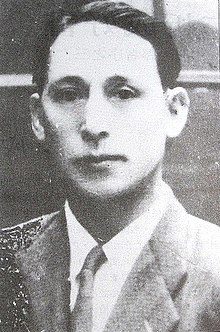Uyongʉ Yata'uyungana

Uyongʉ Yata'uyungana (July 5, 1908 – April 17, 1954), also known as Uong'e Yatauyungana, Yata Issei (矢多一生), Kao Yi-sheng (高一生), was a Taiwanese Tsou musician and educator of the Tfuya tribe. He served as a local officer and a leader of the indigenous autonomous movement in the early post-war Taiwan.
Yatauyungana was educated at Tainan Normal School and became a teacher. In 1945, he served as mayor of Wufeng Township in Chiayi, which was later named Alishan.[1]
During the 228 Incident in 1947, Yatauyungana led a group of Tsou to fight the Kuomintang in Chiayi; when their attempts to take Chiayi Airport were unsuccessful, they returned to Alishan.[2] He was later arrested but was released thanks to lobbying on the part of Losing Watan, an Atayal leader.
In 1952, during the White Terror, he was accused of treason by the government for his advocacy for indigenous autonomy, and was executed along with five other indigenous leaders, including Watan.[3][4] He was posthumously exonerated by the Transitional Justice Commission on July 29, 2020.[5]
Family
[edit]- Kikuko Yatauyungana (daughter)
- Avai Yata'uyungana (son)[6]
- Tanivu Yatauyungana (granddaughter)
- Yinguyu Yatauyungana (granddaughter)
References
[edit]- ^ Buchan, Noah (21 March 2008). "Musical memories". Taipei Times. Retrieved 2 August 2020.
- ^ Loa Lok-sin (4 January 2007). "Murdered Aboriginal icon remembered in new book". Taipei Times. Retrieved 7 February 2021.
- ^ Han Cheung (10 April 2022). "Taiwan in Time: White Terror's lesser-known victims". Taipei Times. Retrieved 10 April 2022.
- ^ 楊碧川 (27 February 2017). "The 228 Massacre In Alishan: "All We Have Left Are Ashes And Bones"". The Reporter. Taipei. Retrieved 7 February 2021.
- ^ Yeh Su-ping & Yeh, Joseph (24 August 2020). "Two unjustly convicted during martial law exonerated". Focus Taiwan. Central News Agency. Archived from the original on 14 February 2021.
- ^ Cheung, Eric (18 March 2023). "As Taiwan embraces its Indigenous people, it rebuffs China". CNN.com. Retrieved 19 March 2023.
- 劉麟玉 (2011). "ウオグ・ヤタウユガナ(高一生)の作品のルーツを探って -植民地台湾の音楽教育と先住民音楽の観点を通して-". 奈良教育大学紀要 (in Japanese). 60 (1).
